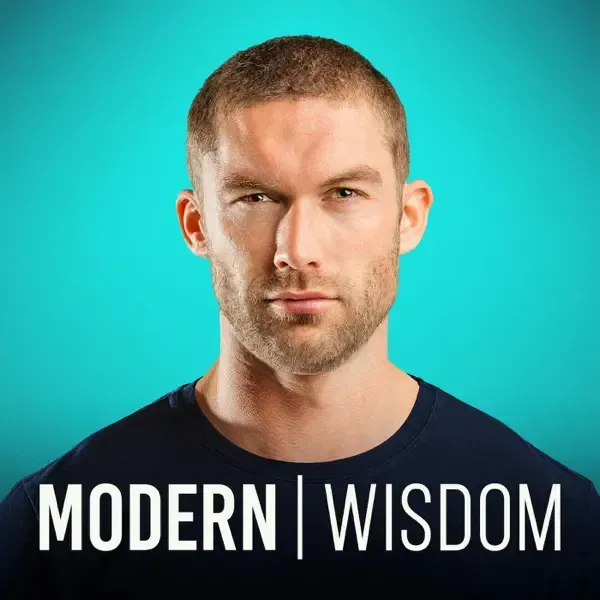Chris sits with Freya India, a writer and journalist focused on female mental health and modern culture, dives into the complex challenges faced by young women today. The discussion highlights the appeal of therapy culture as a substitute for traditional religion and the pitfalls of social media on self-perception and relationships. Freya explores the feelings of aimlessness among women, the commodification of vulnerability in the digital age, and how modern influences are reshaping notions of femininity and empowerment.
Therapy Culture as a Replacement for Religion:
Freya India posits that therapy culture has emerged as a substitute for religion, particularly for young women, offering a worldview that provides comfort and belonging without the demands of traditional faith. She notes that this idea, while not novel—referencing Christopher Lasch’s 1970s writings—has escalated with social media’s advent. Young women interpret their lives through a therapeutic lens, pathologizing everyday emotions rather than viewing them as normal experiences. She suggests therapy culture’s seamless integration into daily life, mimicking religious rituals like prayer with affirmations or reframing thoughts instead of resisting temptation.
“I do think therapy culture has replaced religion… young women don’t see it as a worldview, they just see that as kind of life” - Freya India
Impact of Therapy Culture on Mental Health:
The duo critiques therapy culture’s potential to worsen mental health by fostering excessive self-focus and rumination, particularly among young women. Freya argues that constant self-analysis can trap individuals in self-obsession, hindering genuine growth. She cites Jordan Peterson to emphasize this point: “there’s no difference between like self-obsession and mental illness… it’s focusing too much on your own problems” This reflects the concern that therapy culture’s emphasis on dissecting personal issues may amplify anxiety rather than alleviate it, especially for girls prone to overthinking.
Gender Differences in Therapy Culture:
Freya explores how therapy culture impacts men and women differently, ultimately concluding it may harm women more due to their tendency to ruminate. Initially, she thought it was worse for men because of its “female approach” to problem-solving, but she revised her stance: “I actually changed my mind on that and actually think therapy culture is worse for women because women ruminate more”. This shift underscores how therapy culture exacerbates women’s natural inclinations, potentially deepening their emotional struggles rather than resolving them.
Social Media’s Role in Therapy Culture:
India emphasizes that social media is catalyst that amplifies therapy culture, saturating young women with therapeutic concepts and self-diagnosis tools. She compares this to men’s productivity trends, noting, “it’s kind of a similar thing with therapy culture… we’re trying to have this perfect control over our lives”. Platforms like TikTok and Instagram reinforce a cycle of rumination and control-seeking, offering endless content that shapes how young women perceive themselves and their relationships.
Family Breakdown and Lack of Guidance:
The discussion ties therapy culture’s rise to family breakdown and diminished adult guidance, leaving young women to seek support online. Freya observes, “people are sharing like their really deep trauma and turmoil and problems… and you can’t help but look at it and think are you close to your family… now you’re telling strangers on TikTok”. This reflects a shift from familial support to digital confessionals, she says, driven by over half of UK children not living with both parents by age 14.
Commodification of Relationships and Self:
Therapy culture and social media are critiqued for commodifying relationships and identity, turning personal experiences into content. Freya highlights the “soft launching” trend: “it’s about… how should you announce your boyfriend… it’s like introducing a brand deal or something… viewing our partners like products”. This illustrates how intimate aspects of life are reduced to performative displays for online audiences, eroding their authenticity.
“it’s about… how should you announce your boyfriend… it’s like introducing a brand deal or something… viewing our partners like products”
Conclusion:
As a reminder, Freya works for Jonathan Haidt, who wrote the recent NY Times best seller, “The Anxious Generation”. So, she certainly has a belief that social media has a dreadful impact on children, particularly young girls. When you marry that reality to the idea of “therapy culture” that she introduces, you have a couple of key ingredients for further isolation, rumination and narcism. The podcast ultimately underscores the urgent need to foster genuine relationships and resilience in a society increasingly shaped by digital influences.
We believe that there is probably fire near this “therapy culture” smoke, but of course therapy provides a vital service for many, so its delicate. The real issue may lie with social media and how it amplifies narcissistic behavior and rumination generally. Therapy and self-diagnosis are certainly impacted by this shift. The inter-play is complicated and much further discussion is required. Chris and Freya may not be the “most qualified” people to bring us this message but its good that they continue to further the discussion. We’d like to see a more rigorous discussion and study.
THE PODSCORE: 3.5 (of 5) stars.
